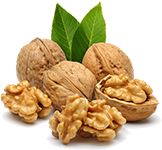This nut by-product inhibits fat accumulation!Sci Rep: Cashew pseudo-nuts extract reduces lipid accumulation in adipocytes, while cashew shell extract significantly inhibits adipocyte differentiation
Pubtime:2025-10-10Author:Source:
Hits:
In today's society, obesity has become a global health problem. According to statistics, more than 10% of the world's population is suffering from obesity, and obesity is not just a simple matter of out-of-shape, but also closely related to a variety of metabolic diseases, such as type 2 diabetes, cardiovascular disease, fatty liver, and even some cancers. The root cause of obesity is the abnormal accumulation of fat, especially fat that “goes to the wrong place” (ectopic fat accumulation), which accumulates in places where it shouldn't be (e.g., around the internal organs), triggering inflammation and insulin resistance, and ultimately leading to dysfunction of white adipose tissue. White adipose tissue is supposed to store excess energy, but when it gets “out of control” it can cause a host of health problems.
Meanwhile, global production and consumption of cashews, a popular nut, is steadily increasing. However, the processing of cashews produces a large number of by-products, such as pseudo fruit and cashew shells, which are largely wasted and underutilized. Nevertheless, it has been shown that cashew pseudo fruit and cashew nut shells have the potential to reduce fat weight, but their direct effect on adipocyte differentiation, the process of fat cell formation, has not yet been explored in depth.
Recently, a study published in Scientific Reports revealed the effects of cashew by-product (cashew pseudo-nuts and cashew nutshell) extracts on adipocyte differentiation. The study, led by scientists at the University of Tsukuba and other institutions, showed that cashew pseudo-nuts extract was able to reduce lipid accumulation in adipocytes, while cashew nutshell extract significantly inhibited adipocyte differentiation. This finding provides strong evidence for the use of cashew by-products in the development of foods and drugs to prevent metabolic disorders and promote health.
In the study, researchers extracted ethanol extracts from cashew kernel (CK, cashew kernel), dried cashew pseudo-fruit (DA, dried cashew apple), and cashew shell (SH, cashew shell) and tested their effects on adipocyte differentiation and lipid accumulation in the 3T3-L1 adipocyte model. The results showed that cashew shell extract significantly inhibited the adipocyte differentiation process by down-regulating key transcription factors related to adipocyte differentiation (e.g., PPARγ, C/EBPα, and SREBP-1), whereas cashew pseudo kernel extract reduced lipid accumulation although it did not alter the levels of key proteins for adipocyte differentiation. In addition, cashew kernel extract did not interfere with adipocyte differentiation but significantly increased the levels of adiponectin, a beneficial adipokine associated with insulin sensitivity, in adipocytes.
Comparison of total phenolic compounds and antioxidant activities in CK, DA, and SH samples and their effects on 3T3-L1 cell viability
This study provides the first systematic insight into the direct effects of cashew by-products on adipocyte differentiation and reveals a unique role for cashew kernel, cashew pseudo-fruit and cashew shell in modulating adipocyte function. Cashew nutshell extract reduced adipose formation by inhibiting adipocyte differentiation, while cashew pseudocarp extract improved adipocyte metabolic function by decreasing lipid accumulation, and cashew kernel extract enhanced the metabolic activity of adipocytes by increasing lipocalin levels.
These findings not only provide a scientific basis for the high-value utilization of cashew by-products, but also provide new ideas for the development of anti-obesity and metabolic modulators from natural sources. In the current health field, natural plant extracts are receiving more and more attention as a potential health regulator. The study of cashew by-products not only fits into this hotspot, but also provides a paradigm for the development and utilization of other plant by-products.
With the increasing global demand for healthy diets and natural medicines, cashew by-products are expected to be an important resource for the development of products to prevent obesity and metabolic disorders. In addition, this study is a reminder that many overlooked plant by-products may hold great health value. In future research, scientists will further explore the active ingredients in these natural resources and study their mechanism of action, so as to develop more effective and safer health products.
In this era of “fat” worries, we urgently need to find more “thin” secrets like cashews to help people maintain a healthy lifestyle. Perhaps in the near future, we can see more health food and health products based on cashew by-products in the market, which can help people to enjoy the food and maintain a healthy body at the same time.

 010-63457516
010-63457516
 Favorites
Favorites
 010-63457516
010-63457516
 Favorites
Favorites